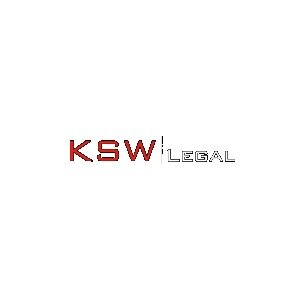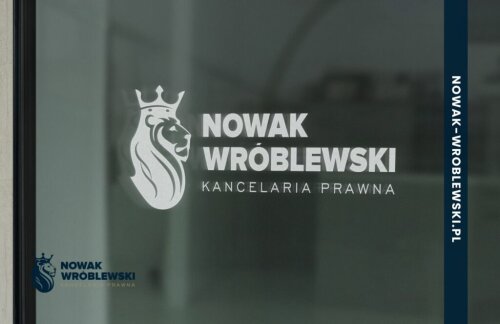Best International Trade Law Lawyers in Poland
Share your needs with us, get contacted by law firms.
Free. Takes 2 min.
Or refine your search by selecting a city:
List of the best lawyers in Poland
About International Trade Law in Poland
International Trade Law in Poland is a complex field encompassing a wide range of legal regulations that govern the exchange of goods, services, and technologies across national borders. The field draws from various areas of law, including contract law, commercial law, customs law, and international treaties like those governed by the World Trade Organization (WTO) and the European Union (EU). Poland, as a member of the EU, adheres to the EU's regulations governing internal and external trade, which further adds intricacy to its legal landscape. Businesses involved in importing and exporting within and beyond EU borders must navigate these comprehensive laws to ensure compliance and successful international transactions.
Why You May Need a Lawyer
There are numerous instances where individuals or businesses may require legal support in International Trade Law in Poland:
- Establishing import/export operations or handling violations of trade compliance.
- Negotiating or drafting international sales contracts and ensuring legal protections.
- Resolving disputes or litigation with foreign trade partners.
- Interpreting and complying with EU trade regulations and sanctions.
- Handling matters related to customs duties, tariffs, or trade barriers.
In these complex scenarios, an experienced international trade lawyer can provide essential guidance and protect your interests in a global trade environment.
Local Laws Overview
The key aspects of local laws relevant to International Trade Law in Poland include:
- EU Regulations: As an EU member, Poland implements EU directives and regulations related to trade, which affect tariffs, quotas, and trade defense.
- Customs Law: Polish customs regulations align with EU customs rules, including procedures for declaring and clearing goods at Polish borders.
- Sanctions and Export Controls: Poland adheres to EU-imposed sanctions and restrictions on specific goods that may affect international trade.
- Trade Agreements: Poland benefits from trade agreements facilitated by the EU, which provide preferential terms with numerous countries.
- Taxation and VAT: International traders must comply with Polish VAT requirements applicable to sales and services within the EU market.
Frequently Asked Questions
What is the role of EU law in Polish International Trade Law?
EU law significantly influences Polish International Trade Law as Poland must conform to the common customs tariff and trade defense mechanisms administered by the EU. This uniformity aims to create an integrated market for all member states.
How do I ensure compliance with Polish import regulations?
Compliance requires a thorough understanding of Poland's customs procedures and EU import rules. Consulting with a customs expert or trade lawyer can aid in navigating these rules.
What steps must I take to start exporting from Poland?
To export from Poland, you must ensure compliance with both Polish and EU export regulations, identify markets, and obtain necessary licenses or certifications related to your product.
Are there taxes or duties specific to Poland on imports?
Import duties align with the EU's Common Custom Tariff. However, you may need to account for Polish VAT on imported goods, even if no customs duty applies.
How are trade disputes typically resolved in Poland?
Many trade disputes are resolved via international arbitration or in Polish commercial courts. Utilizing arbitration clauses in contracts is a common practice for international disputes.
Does Poland have bilateral trade agreements outside the EU?
While the EU negotiates trade agreements on behalf of its member states, Poland benefits from various bilateral agreements between the EU and other countries, providing favorable trade terms.
What are the typical legal challenges in international trade in Poland?
Key legal challenges include navigating complex regulatory landscapes, meeting compliance requirements, and effectively managing cross-border disputes.
How is intellectual property protected in the context of international trade in Poland?
Intellectual property rights in Poland are protected under both national laws and EU regulations, which offer robust protection strategies for businesses.
What is the impact of sanctions on trade in Poland?
Poland, adhering to EU policy, enforces sanctions which may restrict trade with certain countries or goods. It's critical to stay updated on current sanctions affecting your trade.
How can a lawyer assist in facilitating international trade operations?
An international trade lawyer can assist with compliance, contract drafting, dispute resolution, risk management, and navigating the regulatory framework effectively.
Additional Resources
Several resources and organizations in Poland can be helpful for those seeking legal advice in International Trade Law:
- Ministry of Economic Development and Technology: Provides regulatory information and support for international trade operations.
- Customs Chamber in Poland: Offers guidance on customs procedures and compliance.
- European Union Intellectual Property Office (EUIPO): Essential for businesses dealing with intellectual property in international transactions.
- Chambers of Commerce: Both local and international chambers offer networks and resources for traders.
Next Steps
If you need legal assistance in International Trade Law, consider the following steps:
- Research: Conduct preliminary research to understand your specific needs and challenges in international trade.
- Consultation: Schedule a consultation with an experienced international trade lawyer to discuss your needs and explore legal strategies.
- Preparation: Gather all necessary documents, contracts, and details before meeting with your legal representative.
- Engage Representation: Work with your lawyer to ensure you remain compliant with applicable laws and successfully navigate the international trade climate.
- Continual Monitoring: Stay informed about changes in trade laws and regulations that may impact your business operations.
Lawzana helps you find the best lawyers and law firms in Poland through a curated and pre-screened list of qualified legal professionals. Our platform offers rankings and detailed profiles of attorneys and law firms, allowing you to compare based on practice areas, including International Trade Law, experience, and client feedback.
Each profile includes a description of the firm's areas of practice, client reviews, team members and partners, year of establishment, spoken languages, office locations, contact information, social media presence, and any published articles or resources. Most firms on our platform speak English and are experienced in both local and international legal matters.
Get a quote from top-rated law firms in Poland — quickly, securely, and without unnecessary hassle.
Disclaimer:
The information provided on this page is for general informational purposes only and does not constitute legal advice. While we strive to ensure the accuracy and relevance of the content, legal information may change over time, and interpretations of the law can vary. You should always consult with a qualified legal professional for advice specific to your situation.
We disclaim all liability for actions taken or not taken based on the content of this page. If you believe any information is incorrect or outdated, please contact us, and we will review and update it where appropriate.
Browse international trade law law firms by city in Poland
Refine your search by selecting a city.















